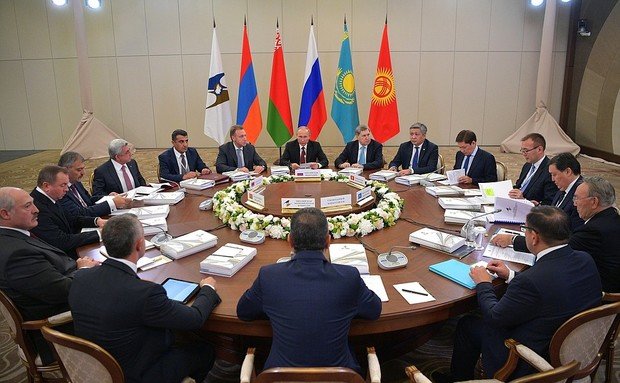Russian oil tax overhaul to impact primarily EEU consumers
The changes in the oil taxation starting next year will gradually exempt Russian crude producers from export duties on their products and impose higher oil extraction taxes on them instead. The reform is unlikely to affect the country's export volumes or oil majors' revenues, but consumers, primarily those from the Eurasian Economic Union (EEU), will feel the burden.
Russia is preparing the most radical shake-up of its oil tax system since 1999, says Bloomberg. Next year, the Kremlin will start to lower export duties on crude and oil products until they're fully abolished in 2024. However, oil extraction taxes are meant to rise, keeping the overall fiscal burden on producers-exporters at the same level. Oil refineries will suffer more, as the tax shift raises the price of every barrel they process. Thus, several types of refineries will enjoy tax breaks (for example, those investing significant funds in upgrades between 2016 and 2024 or the refining subsidiaries of oil producers subject to international sanctions). Basically, all major Russian oil companies can request tax breaks for their refineries.
Russia's Ministry of Energy considers that the country's oil export volume is unlikely to change due to the reform. Even if profits fall for refineries that do not get governmental relief, the share of such refineries in the total output is too small to impact the market considerably, and most of them won't close, believes the ministry's Deputy Head Pavel Sorokin. Russia has exported about half its oil output in the past decade, which was about 257 million tonnes a day in 2017. If a dramatic growth in oil prices makes oil export more attractive for large Russian producers than domestic sales, the law allows for a reinstatement of export duties for both crude and oil products.

''The winner is the Russian budget and the losers are consumers, primarily those in the Eurasian Economic Union, who will pay more for Russian crude and oil products," commented Aleksandr Burgansky, an oil analyst at Renaissance Capital. At the moment, Russia supplies oil to its trading partners in the EEU tax-free. The export duty is paid back only on fuels subsequently produced and resold outside the union. According to Russia's Ministry of Finance, these duty-free supplies cost Russia about 140 billion rubles a year. After the new tax system is implemented, the customers will pay a price for the oil that includes the higher production tax.
For Russia, this is the second attempt to remove export duties on crude and oil products. The first effort was undertaken in 1996 but failed due to the 1998 financial crisis. The new reform will bring the Russian budget extra 1 trillion rubles over the next six years, estimates the Ministry of Finance. The government also aims to create a more stable regulatory framework in order to avoid the volatility of domestic gasoline prices.